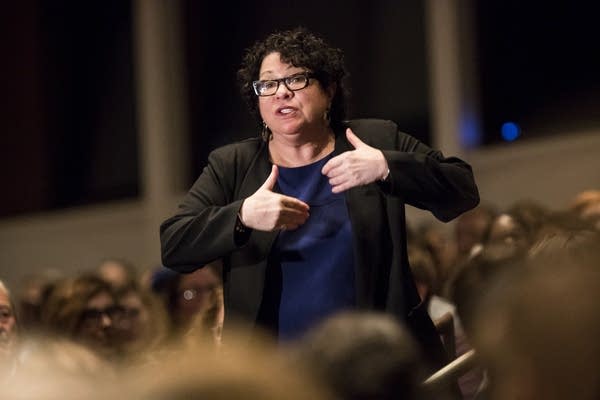At U, Sotomayor speaks about inspiration, Scalia's empty seat

U.S. Supreme Court Associate Justice Sonia Sotomayor speaks before audience at Northrup Auditorium at the University of Minnesota on Monday in Minneapolis.
Renee Jones Schneider | Star Tribune via AP
Go Deeper.
Create an account or log in to save stories.
Like this?
Thanks for liking this story! We have added it to a list of your favorite stories.


